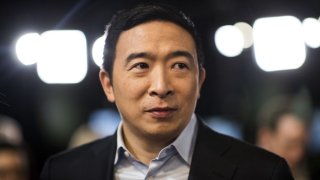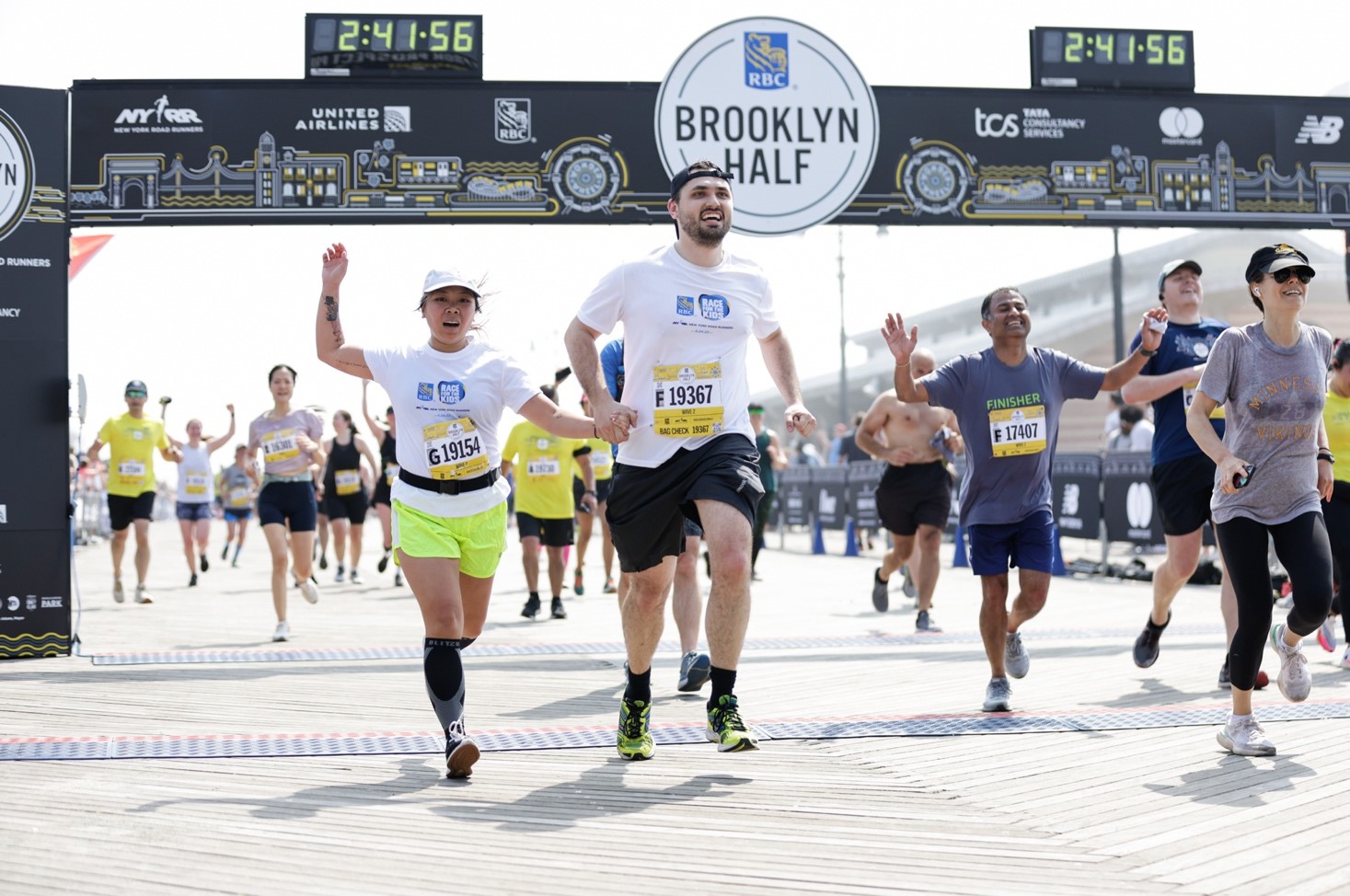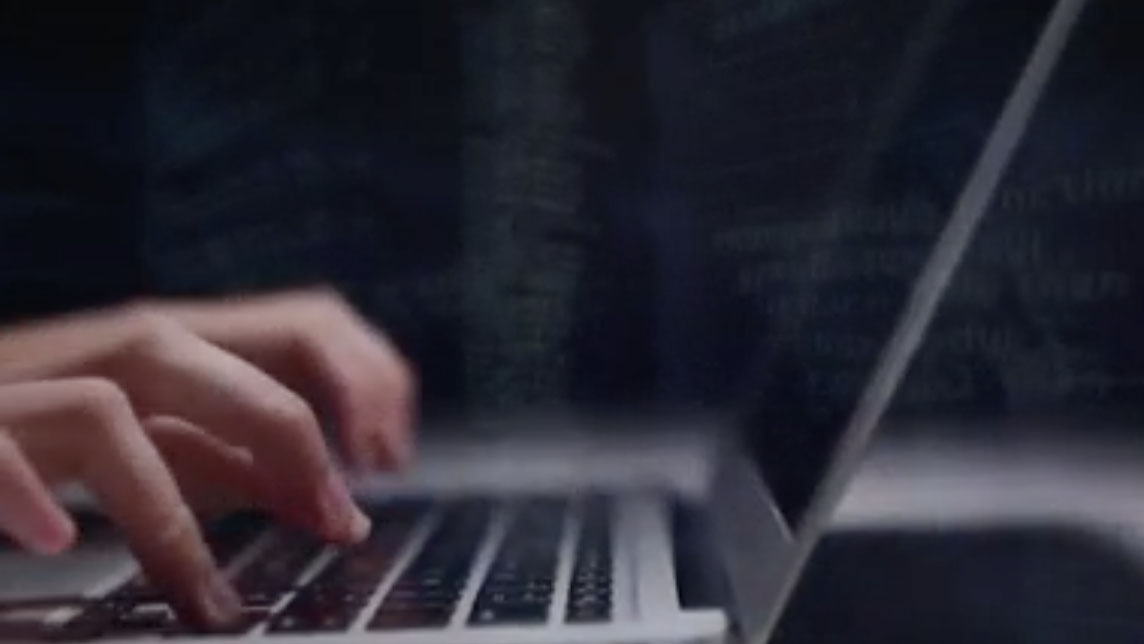
To John Kim, a 55-year-old Korean American lawyer living in Cobble Hill, Brooklyn, what matters most in a political candidate is whether they have new ideas, not their identity.
But being an Asian American “is kind of a cherry on top or an additional bonus,” Kim says.
When Kim first heard of Andrew Yang during the 2020 Democratic presidential primaries, he was skeptical of Yang’s ability to be a viable candidate. His pessimism was rooted in the fact that Asian Americans have historically been underrepresented in government and Kim saw Yang simply as the “token” Asian in the political race. However, as Yang propelled on the national stage and commanded widespread support, Kim’s preconceptions changed.
“He actually succeeded beyond anybody’s expectations,” Kim said. “He was good enough to articulate his ideas well so that people believe that.”
Get Tri-state area news and weather forecasts to your inbox. Sign up for NBC New York newsletters.
Yang's entry shook up a mayoral race between heavily establish New York City politicians, upending what had been seen as a clear battle between Brooklyn Borough President Eric Adams and Comptroller Scott Stringer. Though he's never held elected office, and faced heavy skepticism over his policy plans, his track record and even his residency, enthusiasm for Yang has catapulted him to the front of the race.
Among Yang’s policy proposals that Kim supports is his advocacy of a universal basic income. Yang’s signature proposal helped him win a loyal following of supporters during his presidential run. He is once again making his “freedom dividend” program a central tenet of his political campaign.
As a bankruptcy lawyer, Kim knows first hand the need to insulate New Yorkers from economic insecurity, and considers a universal basic income a good idea to “reduce the inequality both in New York City and in the country.”
Local
While policy is Kim’s primary motivator, some in the Asian American community appear to support Yang because of his ethnicity.
Aaron Chen volunteers doing community outreach for Yang’s mayoral bid. In spending time with his family and friends in the Flushing neighborhood in Queens, home to the city's largest Asian community, the 21-year-old noted that “a lot of them support [Yang] because he’s Asian, just for representation.”
Eva Chien, 30, was motivated to get involved in politics for the first time when Yang ran for the Democratic party’s presidential nominee. Chien, who works in global business development at L’Oreal, has also volunteered to help with Yang’s bid to become New York City mayor.
“Having Andrew Yang, with his commitment to address Asian American issues, hold such a public office would mean that we do also have a voice and an appropriate platform,” said Chien. “Having him be the mayor of New York would validate our sense that we do belong here and we are helping to contribute to the future.”
The 44-year-old businessman and son of Taiwanese immigrants represents an appealing boost of political power for New York City's Asian Americans who have suffered both economic devastation and racial discrimination since the pandemic broke out in March of last year.
Asians in the city suffered the highest rate of unemployment among all major racial groups, surging from a pre-pandemic low of 3.4% in February to 25.6% by May 2020. And while the New York State Department of Labor wasn’t able provide NBC with the latest data on the current unemployment rate for Asians across the five boroughs, according to the agency, the average jobless rate for Asians over the past 12 months was 15%, a sign that many of those who lost their jobs during the pandemic have not gotten them back. That’s because many Asians in the Big Apple were predominantly employed in hospitality and retail, or other service industry jobs such as salons and dry cleaners. Those sectors were among the hardest hit by pandemic shutdowns.
A report published in February by the Asian American Bar Association of New York (AABANY) also found an increase in anti-Asian hate crimes. In 2020, there were 259 incidents of attacks on Asians in New York reported to STOP AAPI Hate, a self reporting center sponsored by the Asian Pacific Policy & Planning Council, Chinese for Affirmative Action, and San Francisco State University’s Asian-American Studies Department. This year in New York City, there have been 33 hate crimes with an Asian victim as of March 30, according to the NYPD. There were 11 such attacks by the same time last year, The Associated Press reports.
The rise has been linked in part to misplaced blame for the coronavirus and former President Donald Trump’s use of racially charged terms like “Chinese virus.”
Xinmin Qiang, a 31-year-old Chinese American from Queens, said racially driven hate crimes have posed a growing threat to his and his family’s safety. He said he wants to see Yang propose specific measures that address his safety concerns and police accountability.
“If he can put this on his priority,” Qiang said. “I will definitely vote for him.”
In response to the string of anti-Asian violence, Yang has called for more funding for the NYPD’s Asian Hate Crime Task Force, a proposal that has drawn criticism from organizers and activists who see it as contradictory to movements of defunding the police.
In a statement to NBC, Yang called the rise in anti-Asian hate crimes in New York "heartbreaking."
"The massive rise in anti-Asian violence in New York is heartbreaking and devastating. It hits home for my family and me," Yang said. "There's a lot of pain in New York because of the pandemic and when people are suffering they will sometimes lash out at people out of ignorance. We need communities to come together and we need the NYPD to fully investigate these crimes. It's up to New York City to show anti-Asian violence is unacceptable."
Like Kim, several supporters who spoke to NBC also backed Yang’s advocacy of a universal basic income. His signature proposal has been modified for the mayoral race, now calling for an annual guaranteed subsidy of $2,000 for roughly 500,000 New Yorkers living in extreme poverty.
"I believe it can help a lot of struggling New Yorkers, lifting them out of poverty," Chen said, citing communities in need in Harlem and the South Bronx where he spent a lot of time as a kid.
The program, which would have to be part of a balanced budget, would cost a city that already has a $9 billion budget hole another $1 billion a year. Yang told CNBC that he would target tax-exempt landlords, like Madison Square Garden, to pay for part of the bill.
But not all Asian American voters are sold on the political newcomer.
David Fu, a 71-year-old homeowner and landlord in Manhattan's Chinatown, is skeptical of Yang’s policies and whether he can make real changes for his community.
“What has he actually done for New York?” Fu said. “The most important thing for me is if he will actually do things for Asian Americans. But just from what I’ve seen from New York’s Chinese American politicians in the past, I doubt that he will.”
The mayoral hopeful is counting on a combination of business acumen and recent political credentials to win over New Yorkers. However, over the coming months, “there is going to be more pressure on him to find specific, concrete things that he’s going to propose beyond the universal basic income” and “move beyond his name recognition,” according to John Albert, an Indian American lawyer who successfully advocated for the passage of New York State’s anti-stalking and anti-hate crimes law.
If Yang wants to seize more votes from the Asian American community, Albert added, he should demonstrate his understanding of the level of Asian poverty within the city. Currently, more than one quarter of Asian Americans in New York City live in poverty, the highest rate among all ethnic groups despite education attainment.
“If he can demonstrate that he really understands the plight of the regular person here, then the voter turnout will follow,” Albert said.
Despite entering a crowded mayoral race much later than most of his opponents, Yang has been running a well-fueled campaign, largely due to his name recognition and a cult following of supporters.
A recent poll from Fontas Advisors and Core Decision Analytics confirmed his clear advantage. It found that 85% of respondents said they had heard of Yang, compared to just 64% and 62% awareness of his closest rivals, Comptroller Scott Stringer and Brooklyn Borough President Eric Adams.
The same poll shows that Yang leads the race with 16% support, a decline from 28% in a previous poll in February. Adams came in second at 10%, falling from 17% two months ago.
However, over half of its respondents are undecided in the upcoming race, making Yang’s front-runner status uncertain. Of the 800 Democratic primary likely voters surveyed, 5% identified as Asian.
Yang has received endorsement from several Asian American local politicians, including Queens Assemblyman Ron Kim and Manhattan Council Member Margaret Chin.
But other prominent Asian American politicians are either holding back support or have already backed other candidates.
Assemblywoman Yuh-Line Niou, who represents Lower Manhattan and Chinatown, endorsed Stringer in September, months before Yang entered the race. U.S. Rep. Grace Meng, D-N.Y., the first Asian American member of the state’s congressional delegation and a top official for the Democratic National Committee, has yet to make an endorsement announcement. Meng's 2020 reelection bid received an endorsement from Yang’s Humanity Forward Foundation.
State Senator John C. Liu, the first Asian American New York City Council member, is also holding back. Though Liu has praised Yang as an “articulate, persuasive and persistent” presidential candidate, he said Yang is not as connected to issues as many New Yorkers would think,” referring to the backlash Yang received for not being able to distinguish between a deli and a bodega in a viral Twitter video.
Yang, who was born in Schenectady and has lived in NYC for the past 25 years, has had to fend off accusations from rivals questioning his commitment to the five boroughs. He was criticized for escaping to his second home in New Paltz during the pandemic and for not voting in several mayoral elections.
“If you look at a couple of early missteps, some of the more seasoned candidates would never make those kinds of missteps," said Liu.
Most recently, Yang faced new rounds of backlash for his past remarks on abortion and his tweet about calling for a crackdown on NYC’s unlicensed street vendors.
Still, Yang’s life story is intriguing to a diverse group of voters, according to Albert. As the son of highly educated Taiwanese American immigrants, Yang reflects “a path to success” — starting his own business, becoming a prosperous entrepreneur and then shifting to philanthropy and now running for public office.
Yang has “a pan-Asian appeal,” Albert said. “He seems to cover every aspect of life in the U.S. He doesn’t rely on his ethnicity. It’s really the strength of his ideas.”



